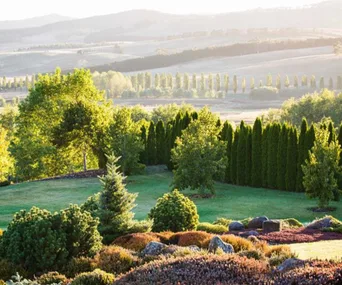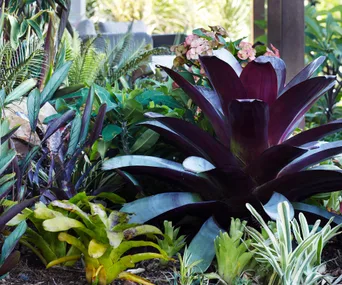Imagine waking up each morning, stepping outside and being surrounded by a delicate floral fragrance. This dream could become reality simply by adding a few fragrant flowers and plants to your garden.
You can enjoy fragrance during all four seasons, it just takes a little planning. Choose the scented plants you want to add to your space, check when they flower, and plant good mix of [seasonal flowering plants](https://htl.dev.digital.aremedia.com.au/the-best-flowering-plants-for-summer-4538 |target=”_blank”) to ensure year-round fragrance.
Daphne
Daphne is the queen of winter perfumes. It is a difficult plant to grow, but is still worth your persistence given the flower’s intoxicating scent. Daphne needs excellent drainage and shelter from strong sun, so maybe try planting in a pot instead of the ground. Even one flower will make your efforts worthwhile.
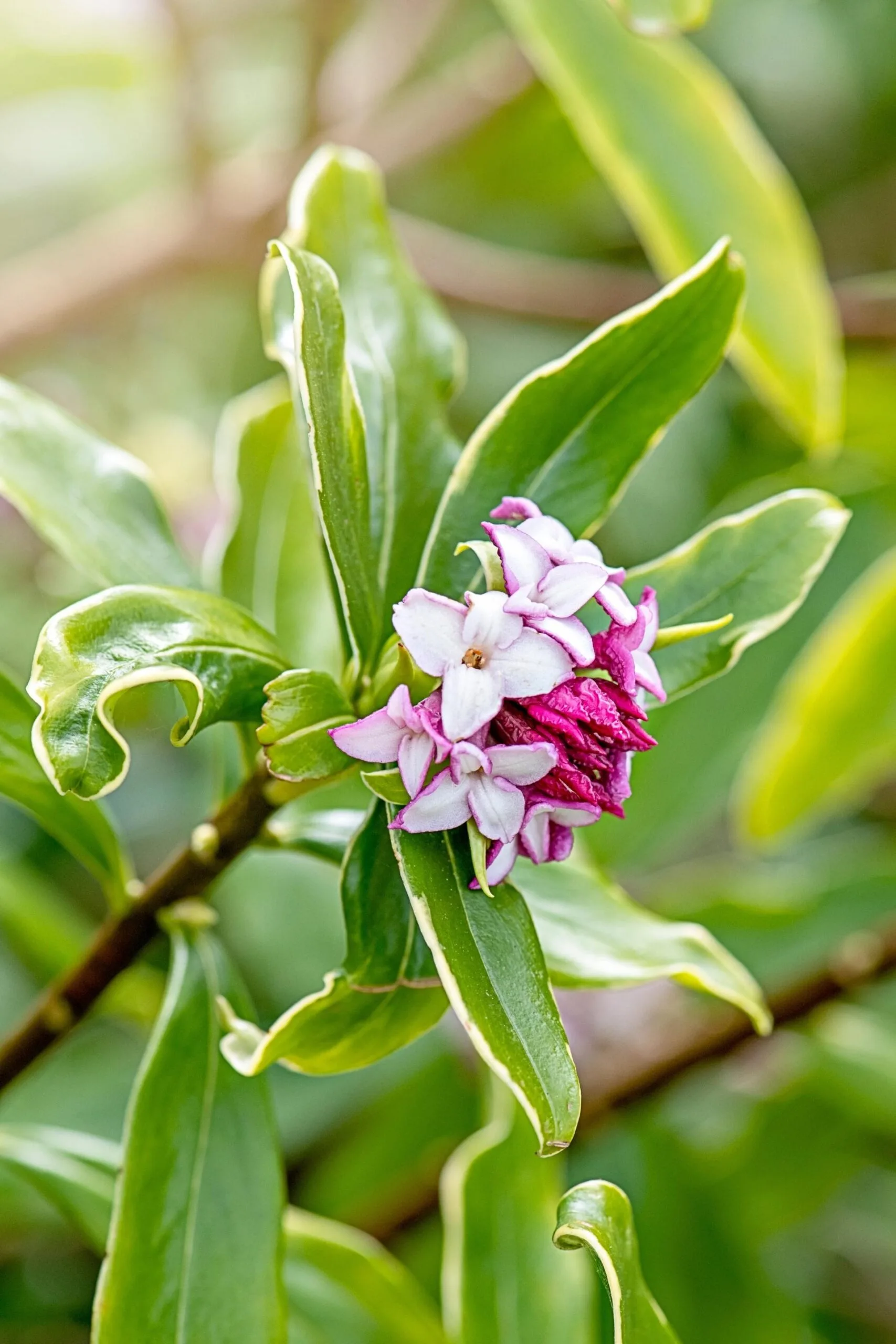
Daphne has pink star-shaped blooms, woody stems and an unmistakable lolly-sweet fragrance.
Port Wine Magnolia
Flowers in late spring and has a fragrance often described as a cross between mashed banana and vanilla ice cream! The striking plant can be trimmed into an evergreen hedge – the perfect [screening plant](https://htl.dev.digital.aremedia.com.au/five-fast-growing-screening-plants-for-privacy-2017-5164 |target=”_blank”) for fences and neighbours – or allowed to grow free-form into a taller shrub or small tree.
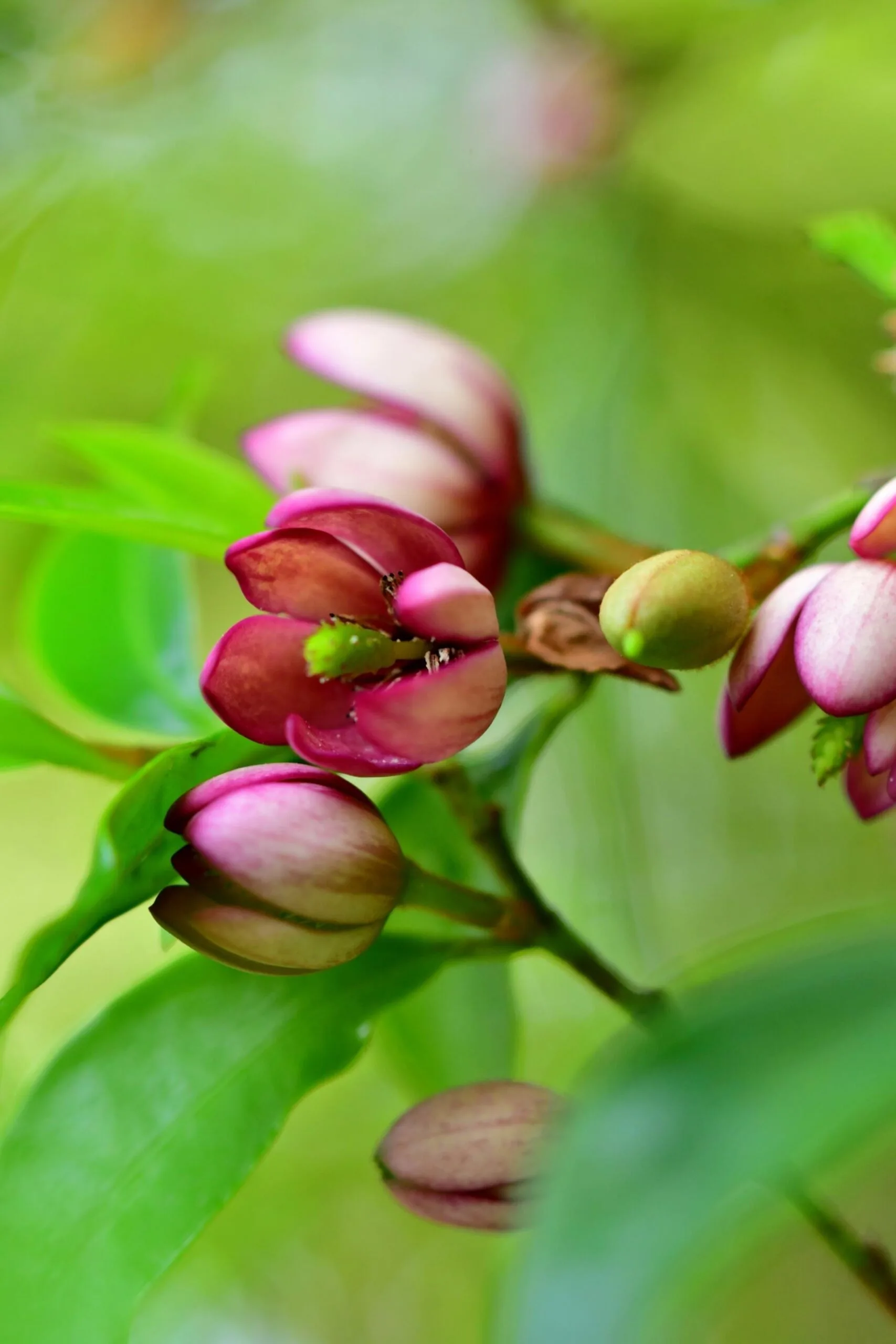
Port wine magnolia makes a striking display of small, sweet-smelling blooms against lime green foliage.
(Image: Getty) (Credit: Image: Getty)Jasmine
Jasmine plants come in various types, all with a beautiful scent. The variety used in perfume is Jasminum officinale ‘Grandiflorum’. Being climbers, jasmine needs support like a fence or trellis. They flower in spring and respond well to pruning, promoting new growth and, in turn, more flowers. Although popular, Jasminum polyanthum can be weedy.
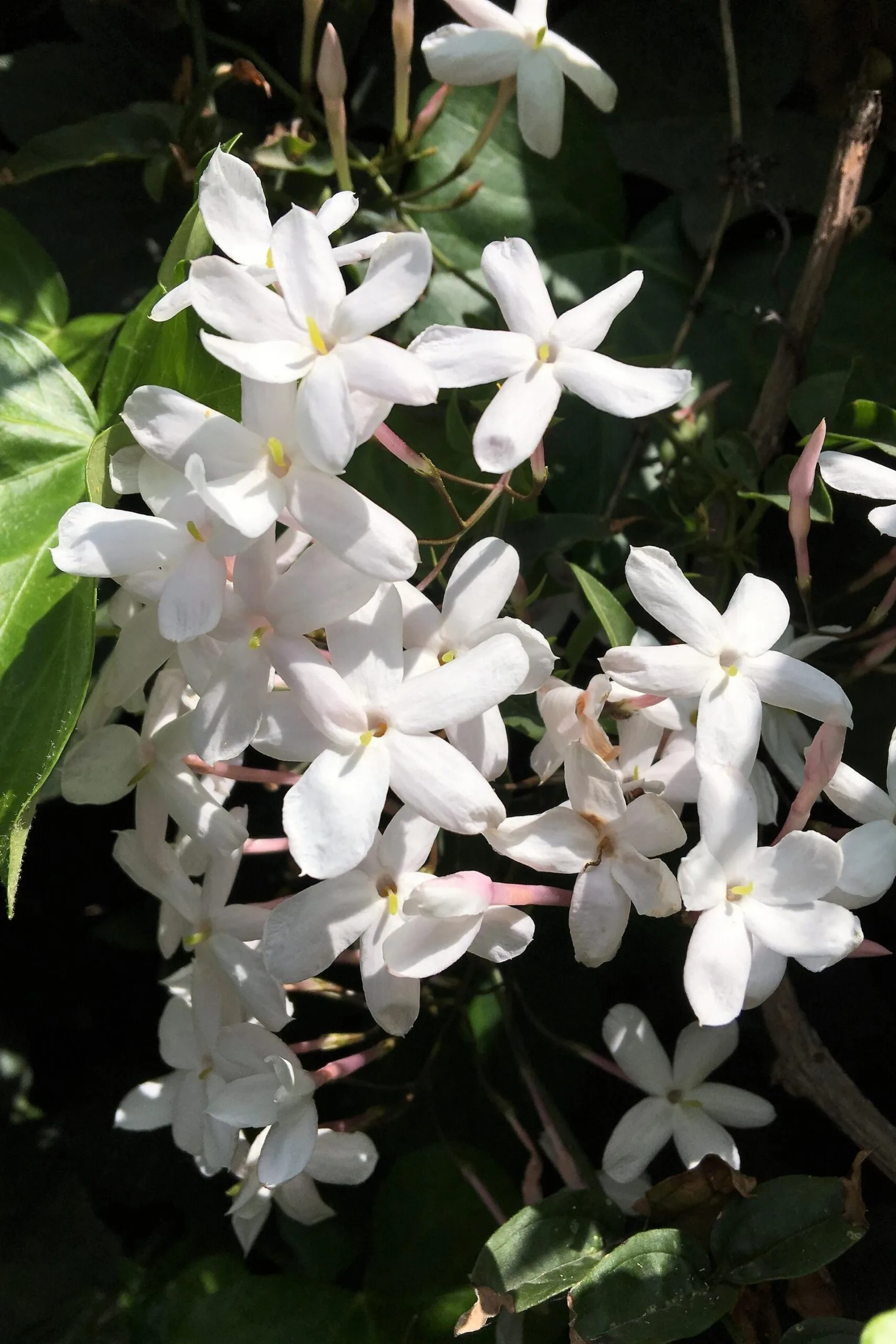
Each year, jasmine heralds the arrival of springs as it bursts into bloom.
(Image: Getty) (Credit: Image: Getty)Gardenia
Gardenias range in size from ground covers to large shrubs. The most popular is the ‘Florida’, which has glossy leaves, grows to around 1.5m and is almost smothered in blooms over summer. Gardenias can be grown in tubs or in slightly acidic soil. Protect from frosts and strong sunshine, but make sure it still gets some direct sun to promote flowering.
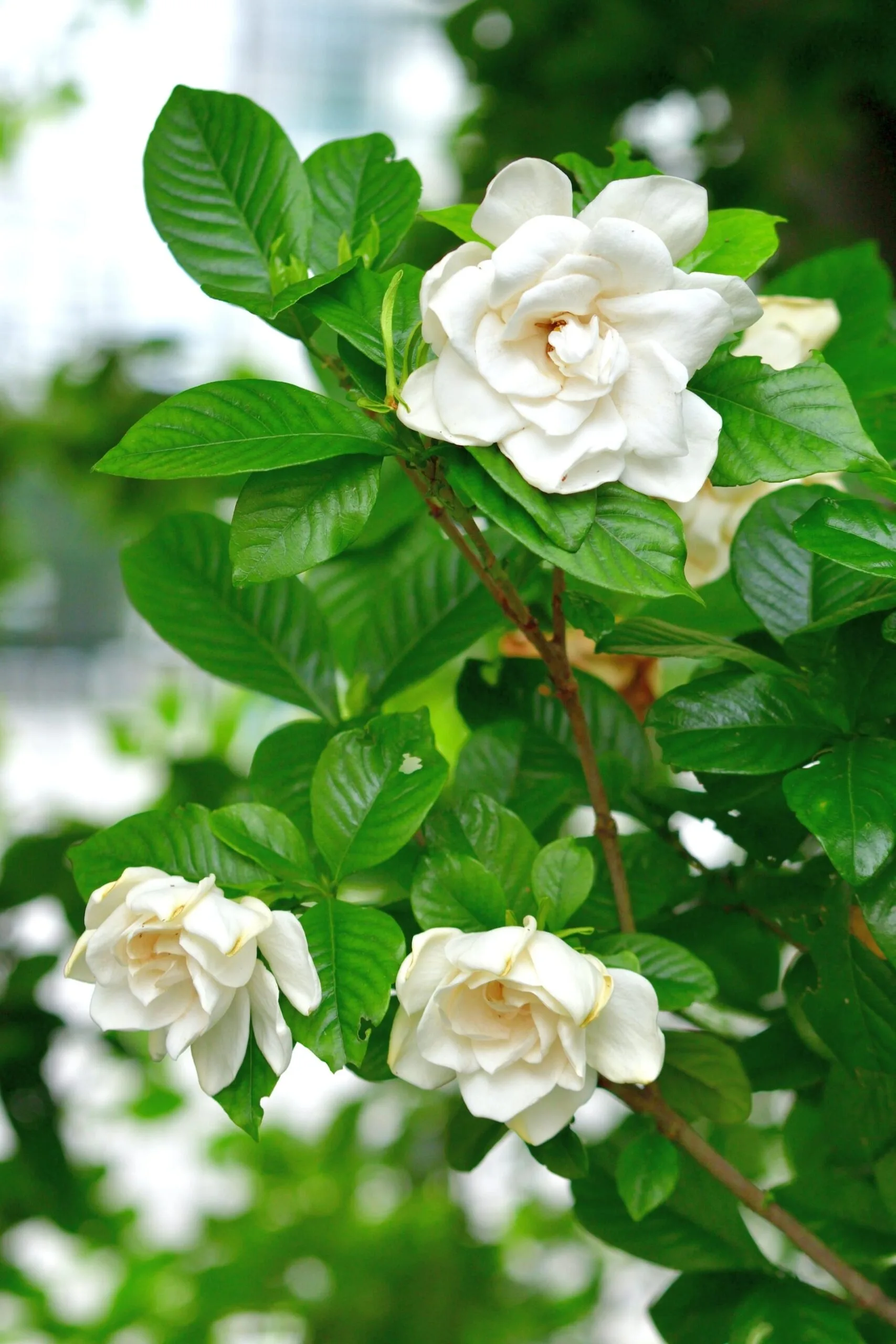
Gardenia makes a stunning fragrant display – both in the garden and in a bud vase.
(Image: Getty) (Credit: Image: Getty)Lavender
Has richly perfumed foliage and flowers. Closely related to rosemary, lavender should be grown in the same conditions. English Lavender is grown for its perfume, but in the garden, French and Italian cultivars are probably better as they bloom in spring, summer and autumn if you regularly remove spent blooms.
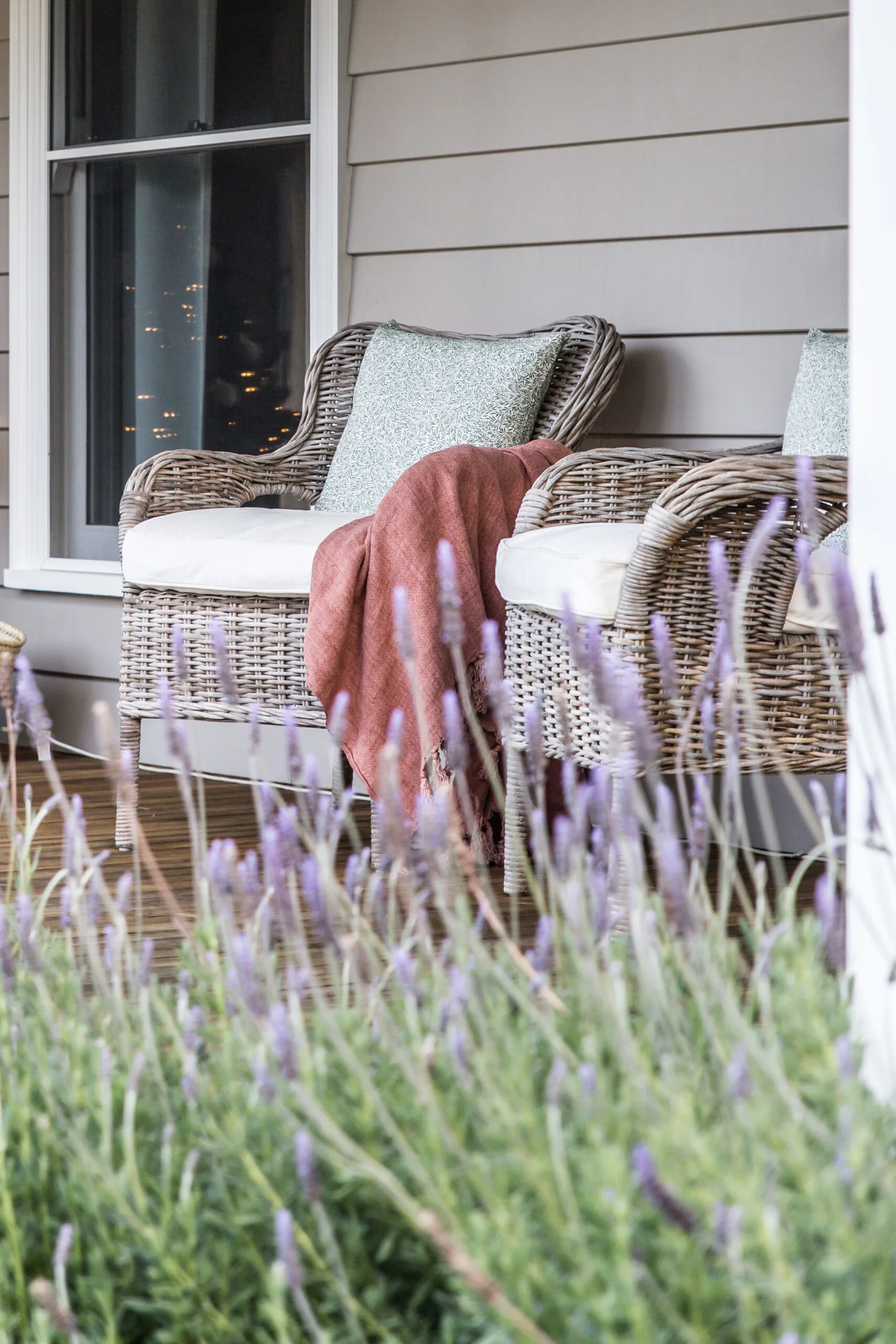
English lavender planted at the entrance to your home makes for a calming welcome.
(Photographer: Nicki Dobrznski / Story: Home Beautiful) (Credit: Photographer: Nicki Dobrznski / Story: Home Beautiful)Rosemary
With its lovely pungent leaves, rosemary certainly deserves a place in a fragrant garden. Just brushing past a rosemary bush is enough to fill the air with its spicy aroma. Plant in a sunny spot with excellent drainage. It’s great cut into balls or hedges. Trim after flowering to encourage new growth and apply lime annually.
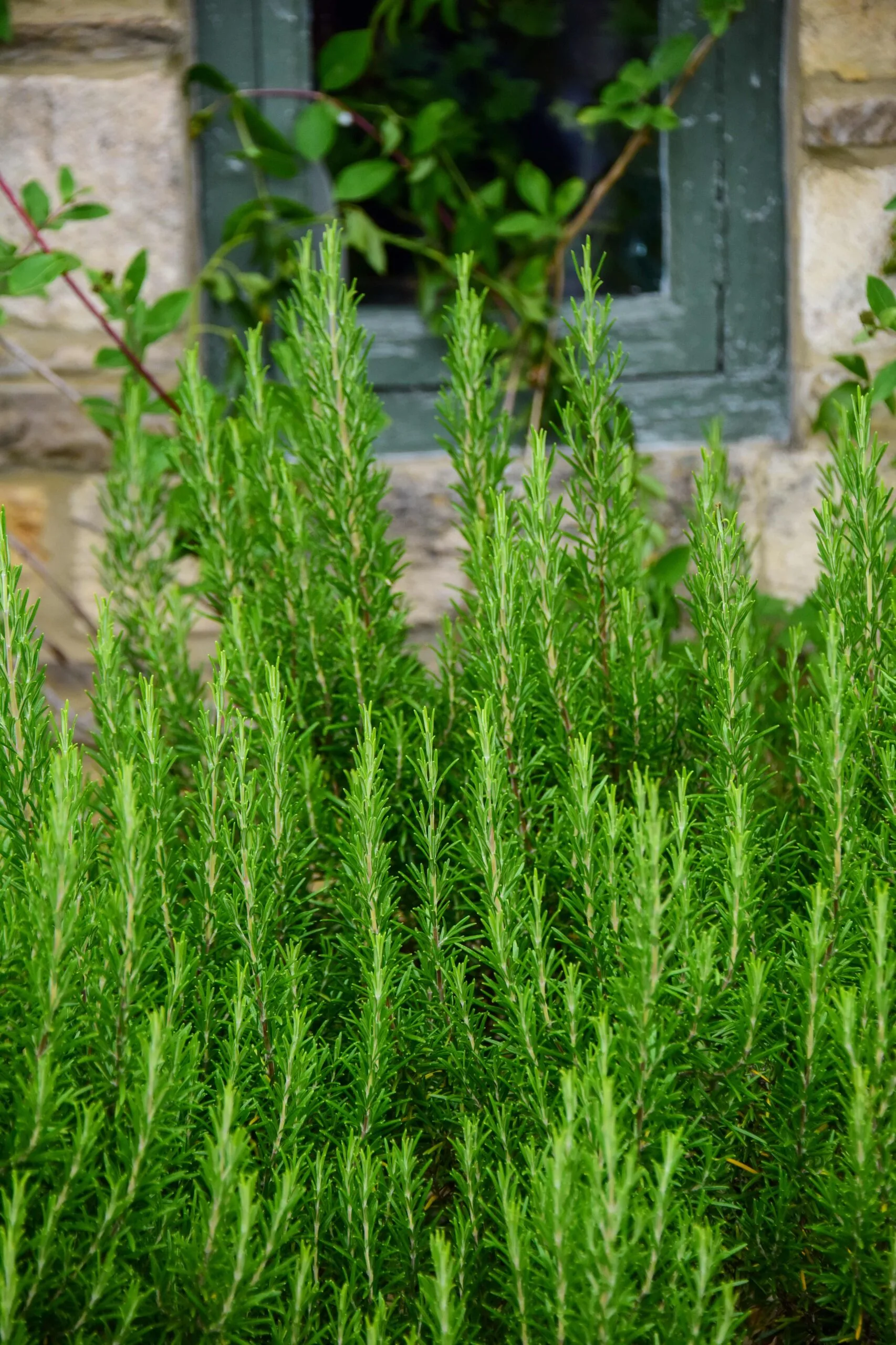
A rosemary bush in the right spot grows lush and lovely. Tell your neighbours to help themselves by snipping the tips to keep it compact.
(Image: Getty) (Credit: Image: Getty)Chinese Star Jasmine
Is a popular alternative to its namesake. This evergreen [climbing plant](https://htl.dev.digital.aremedia.com.au/climbing-high-a-lesson-in-the-art-of-creepers-3356 |target=”_blank”) can also make a useful ground cover. It has star-shaped blooms in late spring and is very useful for shady areas where it will still flower reliably. There are also variegated forms which make a year-round colour contribution to your garden.
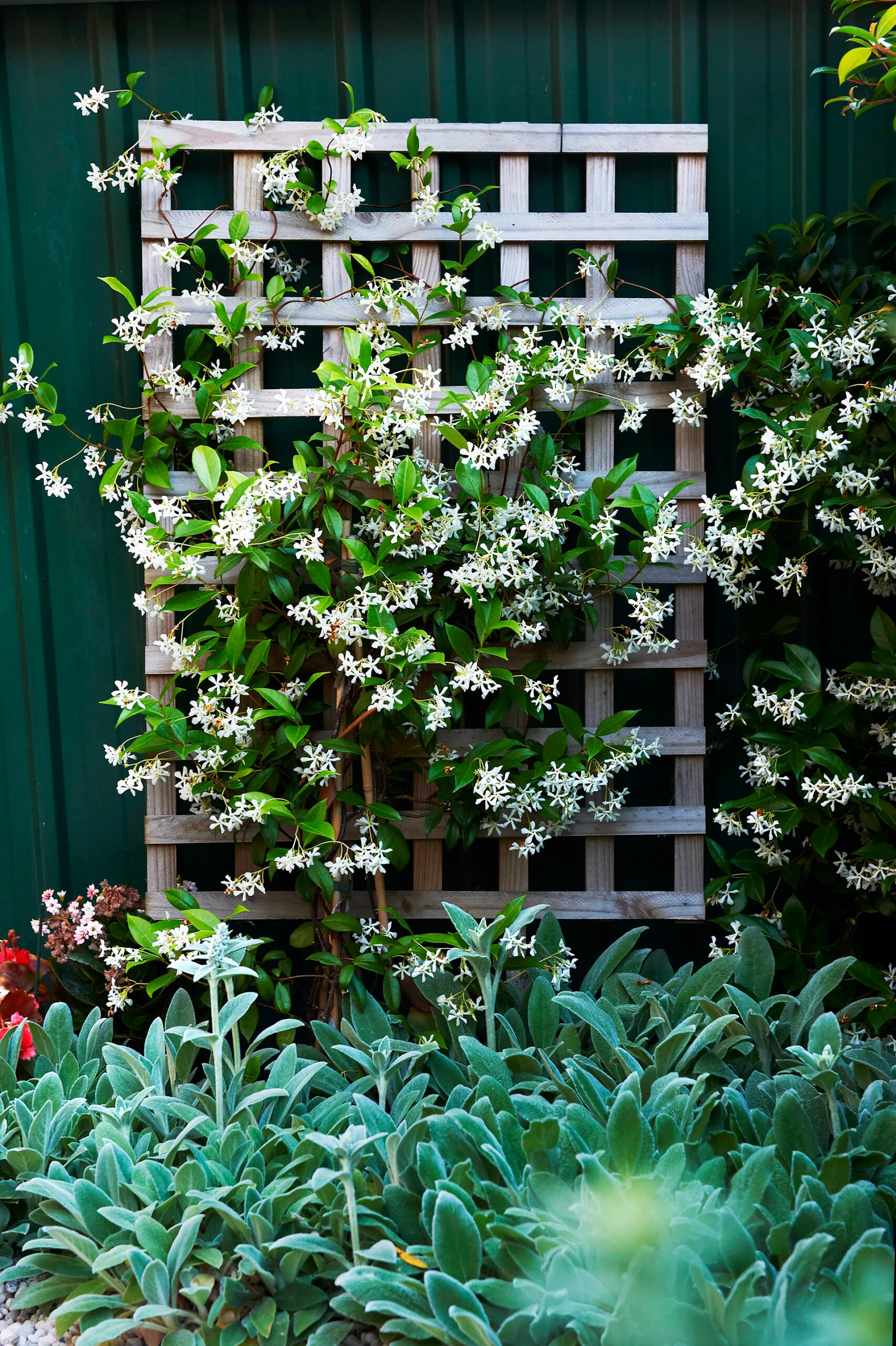
Star Jasmine is a popular climbing plant due to its sweet fragrant smell.
Lilac
Can be a deciduous small tree or a large shrub and has a seductive floral perfume. It is only suited to the colder parts of Australia like Melbourne, the highlands, mountains, tablelands and Tasmania. In Celtic culture, the fragrance of the lilac tree was considered magical. The pink, white, purple and deep rose blooms appear in spring.
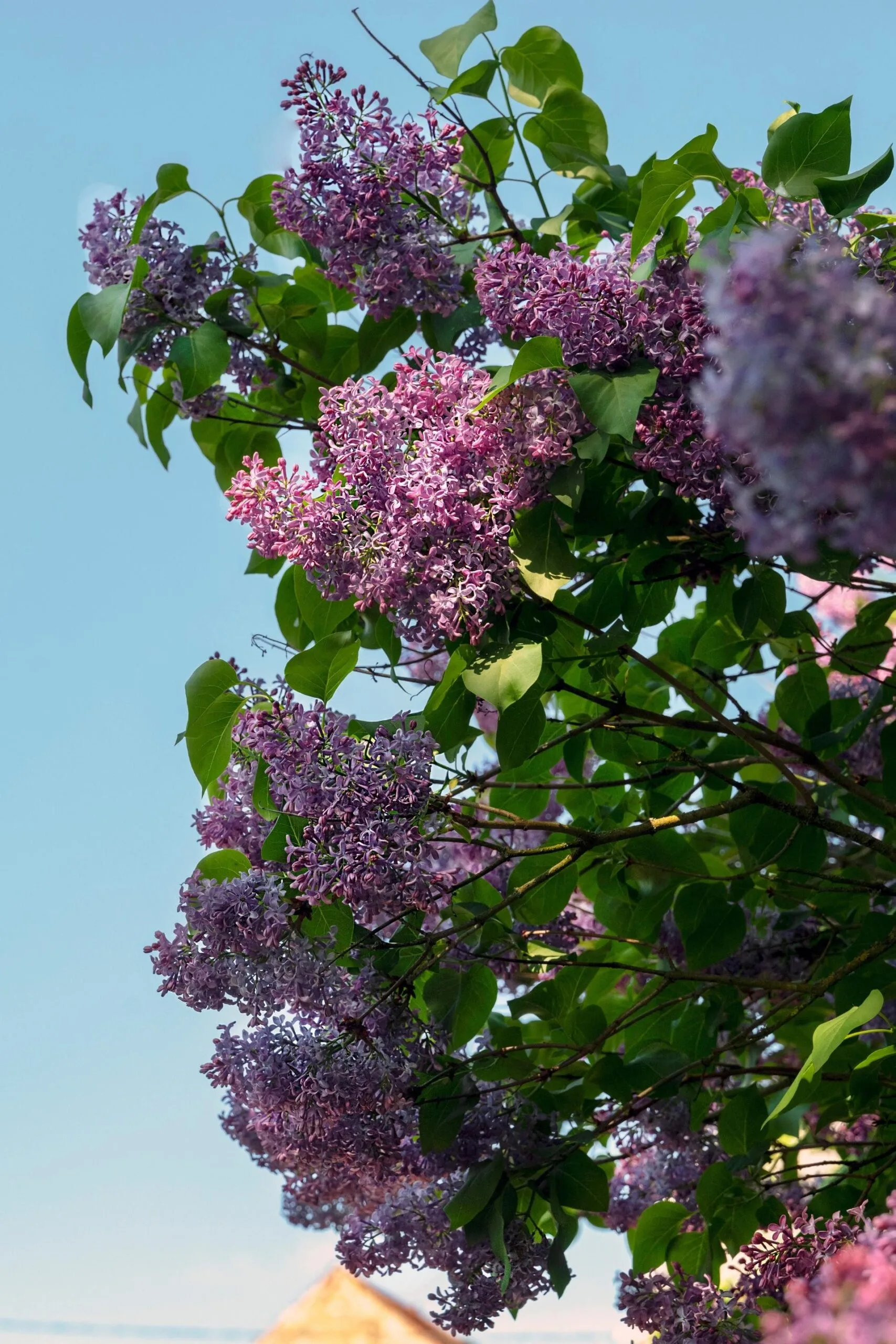
You can’t beat the beauty of liliac in a cool-climate garden.
(Image: Getty) (Credit: Image: Getty)Murraya
Is one on the great backbones of the floral garden. It flowers three times a year: in spring, summer and autumn, each time after rain. It is frequently used as a [hedging plant](https://htl.dev.digital.aremedia.com.au/the-best-plants-for-creating-a-hedge-4163 |target=”_blank”) and has apple-green flowers that bloom year round. Murraya is related to citrus and responds well to regular applications of pelletised manure.
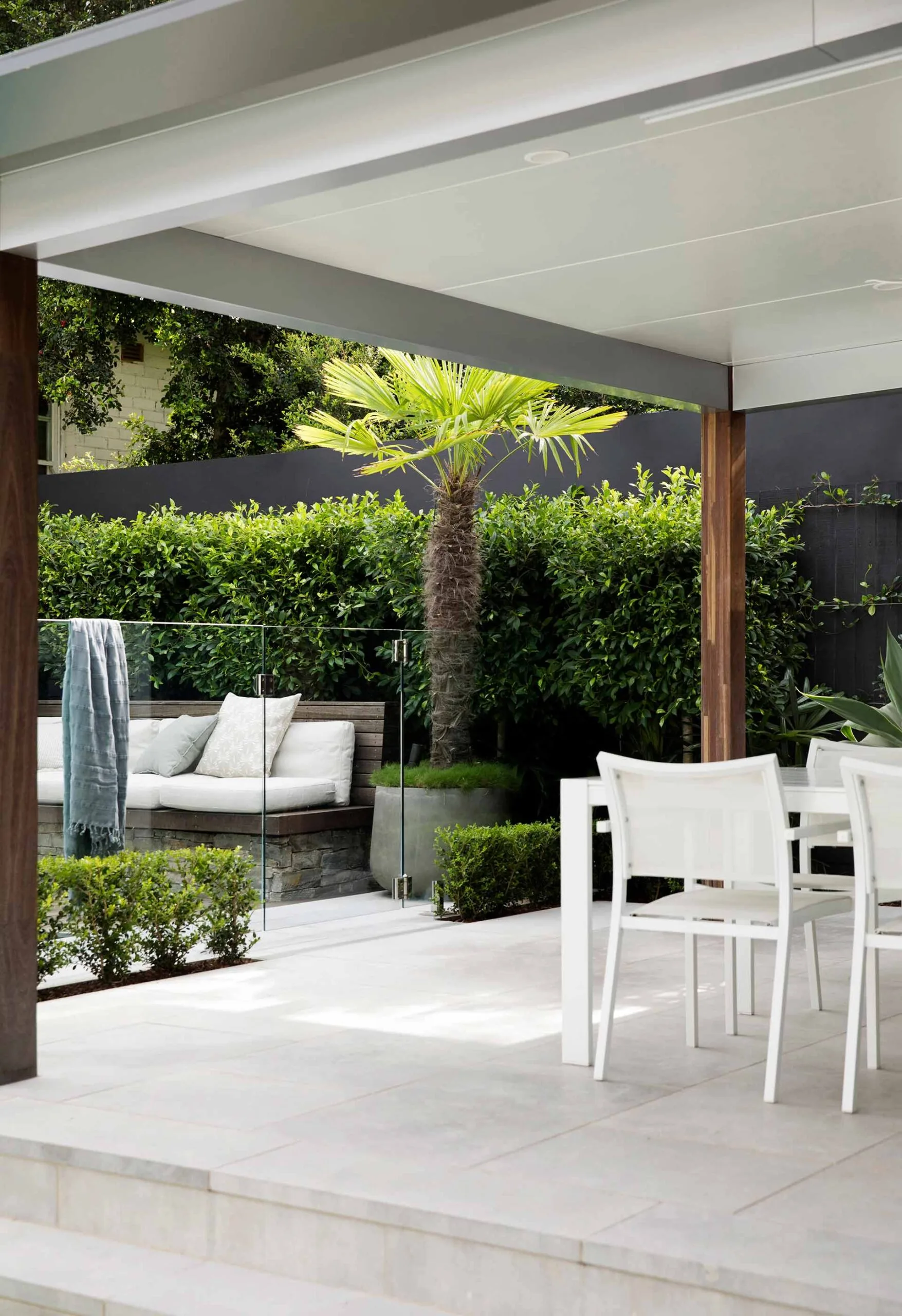
Fragrant in summer, a hedge of murraya is lush all year round as seen in this relaxed outdoor zone.
LESS COMMON FRAGRANT PLANTS
-
Osmanthus – smells like apricot nectar.
-
Buddleia – also known as ‘Spring Promise’, which smells like freesias.
-
Randia – an Australian native gardenia.
-
Boronia – Elusive but beautiful and produces a beautiful perfume.
WANT MORE ON PLANTS? TRY THESE…

